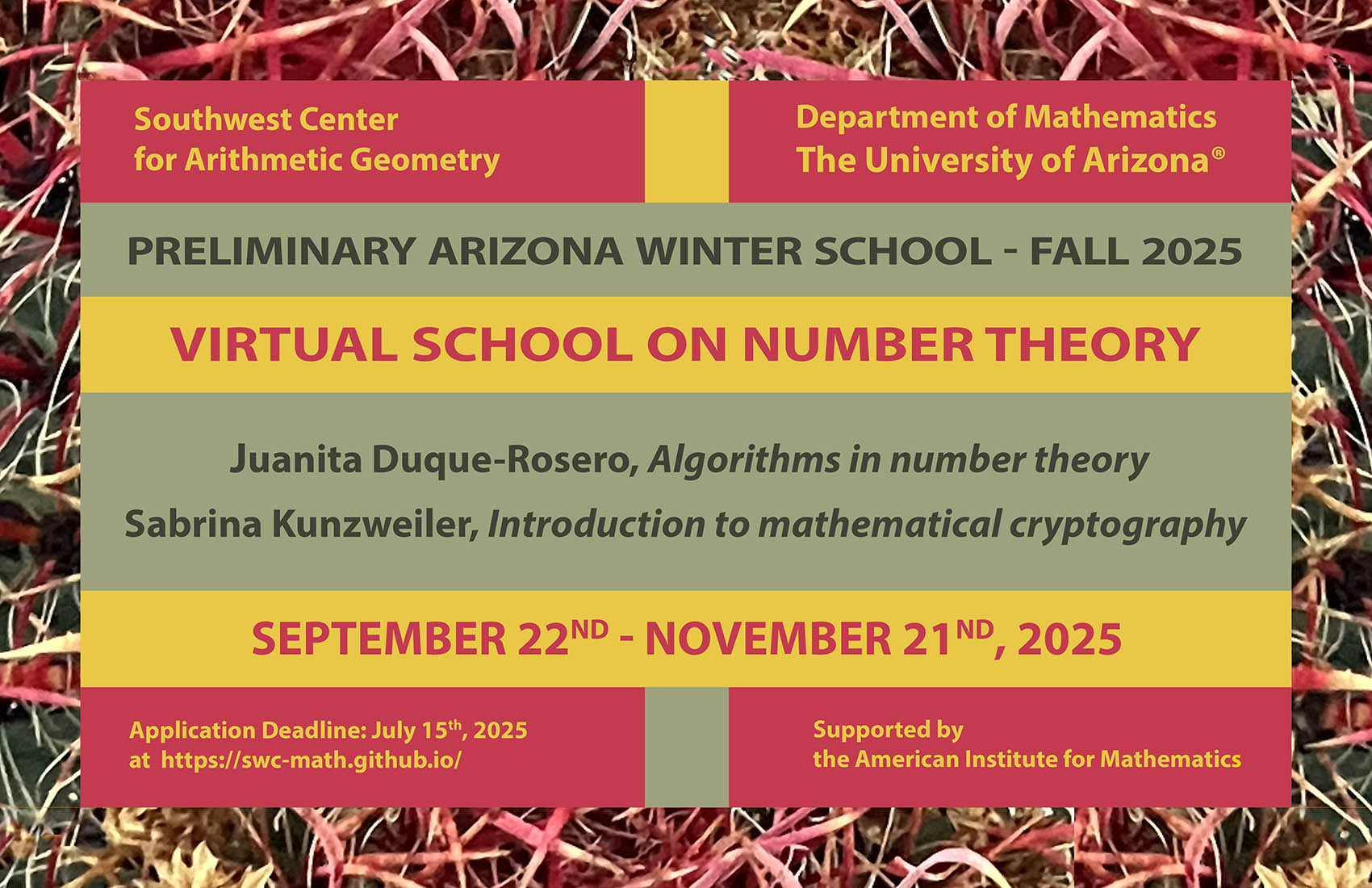Arizona Winter School 2026: Computational Aspects of Arithmetic Geometry and Cryptography
AWS 2026 will be held March 7-11, 2026 at the University of Arizona in Tucson, AZ. For more information go here.
- Registration is now closed.
All participants must abide by the AWS Code of Conduct and the University of Arizona nondiscrimination and anti-harassment policy.
Speakers:
Sarah Arpin and Chloe Martindale: Exploiting higher dimensions in isogeny-based cryptography
-
Kirsten Eisentraeger: Supersingular isogeny graphs in cryptography
-
David Harvey: Counting points on hyperelliptic curves over finite fields
-
John Voight: Computing modular forms
Organizers:
Anna Medvedovsky, Anthony Várilly-Alvarado, and Isabel Vogt (main program)
with Renee Bell, Daniel Erman, Brandon Levin, Padma Srinivasan, and Hang Xue.
Please contact aws@swcmath.org with any questions.
Funded by the National Science Foundation, and organized in partnership with the Clay Mathematics Institute.
Please refer to University of Arizona academic calendars for the tentative dates of future Winter Schools. (The AWS begins on the first day of the University of Arizona's Spring Recess in any given year.)
Preliminary Arizona Winter School 2025: Mathematical cryptography and algorithms in number theory
The Preliminary Arizona Winter School (PAWS) is a virtual program on topics related to the upcoming AWS, with an intended audience of advanced undergraduate students and junior graduate students.
September 22nd — November 21st, 2025
PAWS 2025 consists of two concurrent lecture series.-
Sabrina Kunzweiler: Introduction to mathematical cryptography
-
Juanita Duque-Rosero: Analysis and implementation of algorithms in number theory
Each lecturer will be accompanied by graduate student assistants, who will be in charge of writing weekly problem sets and facilitating weekly, hour-long problem solving and discussion meetings with groups of students. Introduction to mathematical cryptography will assume only a first undergraduate course in abstract algebra as a prerequisite. Analysis and implementation of algorithms in number theory will assume fluency with algebra at a beginning graduate level and familiarity with the basic objects of algebraic number theory (such as number fields and their rings of integers), but will not assume any prior experience with analysis of algorithms.
Organizers: Renee Bell, Brandon Levin and Padmavathi Srinivasan (main organizers)
with Anthony Várilly-Alvarado, Isabel Vogt and Hang Xue.
Funded by the American Institute of Mathematics.
